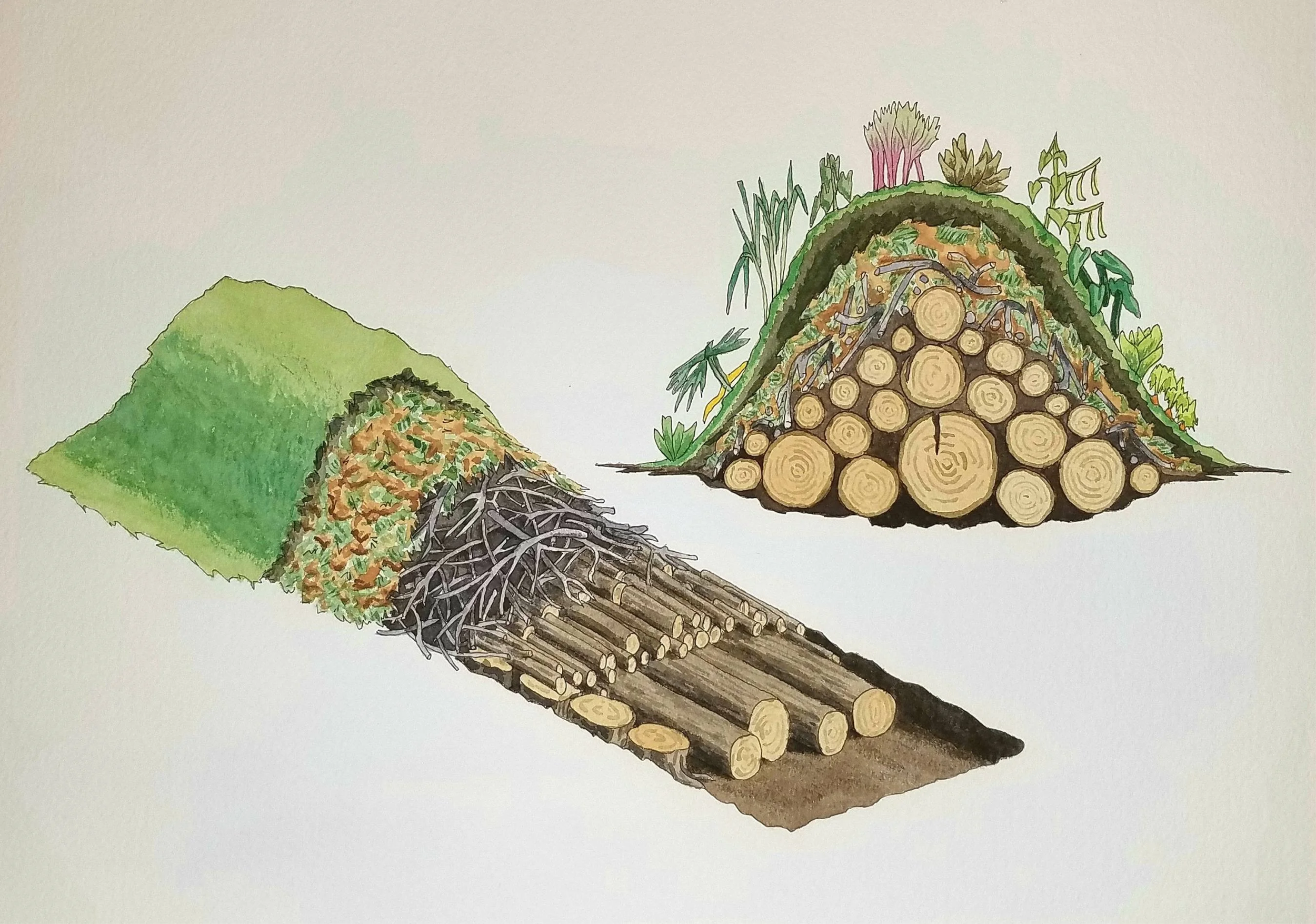Hügelkultur Pro-Tip
Exploring Hügelkultur Beds in the Pacific Northwest
Nestled in the lush greenery of the Pacific Northwest, a gardening evolution is taking root with the adoption of Hügelkultur beds. Inspired by traditional European agricultural practices and tailored to the unique climate and landscape of the region, Hügelkultur beds offer a bounty of benefits that resonate deeply with the ethos of sustainability and environmental stewardship cherished in the PNW. Let's delve into how Hügelkultur beds are transforming gardening practices in this vibrant corner of the world.
1. Honoring Sustainable Heritage
In the Pacific Northwest, where natural resources abound but conservation remains paramount, Hügelkultur beds honor a sustainable heritage deeply rooted in the region's cultural fabric. Hügelkultur, a farming practice that originated in Germany, was developed as a solution to enhance nutrient-poor soils. Farmers aimed to improve soil fertility and drainage, giving rise to the creation of mounded beds. Hügelkultur embodies a harmonious relationship with nature, utilizing fallen trees, branches, and organic matter to create fertile growing spaces that nurture crops while minimizing environmental impact.
2. Adapting to the PNW Landscape
The PNW's temperate climate and abundant rainfall make it an ideal setting for Hügelkultur beds. By harnessing the moisture-retaining properties of woody debris and organic materials, Hügelkultur beds thrive in the region's wet winters and dry summers, ensuring consistent water availability for plants and reducing the need for irrigation. This adaptability to local climatic conditions makes Hügelkultur a resilient gardening solution for PNW gardeners.
3. Environmental Harmony and Resource Conservation
Embraced by environmentally conscious communities, Hügelkultur beds in the PNW contribute significantly to resource conservation and waste reduction efforts. By repurposing fallen branches, pruned limbs, and compostable materials, Hügelkultur beds divert organic waste from landfills, enrich soil fertility, and promote natural nutrient cycling. This eco-friendly approach aligns seamlessly with the PNW's commitment to sustainability and ecosystem stewardship.
4. Nurturing Soil Health and Plant Vitality
The decomposition process inherent in Hügelkultur beds fosters robust soil health and enhances plant vitality, essential factors in the PNW's diverse gardening landscape. Nutrient-rich soil teeming with beneficial microorganisms supports vigorous plant growth, increased yields, and improved resilience to pests and diseases. PNW gardeners embracing Hügelkultur witness flourishing gardens that reflect the region's bounty and natural abundance.
5. Urban Adaptability and Community Connection
In bustling urban centers like Seattle, Portland, and Vancouver, Hügelkultur raised beds offer a pathway to reconnect with nature and foster community resilience. Compact Hügelkultur designs suit balcony gardens, rooftop plots, and community spaces, empowering urban dwellers to grow fresh produce, beautify neighborhoods, and strengthen local food systems. This blend of sustainability, adaptability, and community connection embodies the spirit of the PNW's eco-conscious ethos.
In essence, Hügelkultur beds resonate deeply with the Pacific Northwest's values of sustainability, environmental stewardship, and community resilience. From honoring sustainable heritage to adapting to local landscapes and fostering soil health, Hügelkultur represents a gardening paradigm that harmonizes with the natural rhythms of the PNW, creating vibrant, thriving ecosystems that mirror the beauty and diversity of this extraordinary region.
If you're looking to implement Hügelkultur beds in your garden space, Eco-Restore is here to help. Our team can assist you in building these innovative beds or designing a customized solution that suits your specific garden needs and space constraints. Let's work together to create a sustainable garden that embodies the spirit of the Pacific Northwest.





